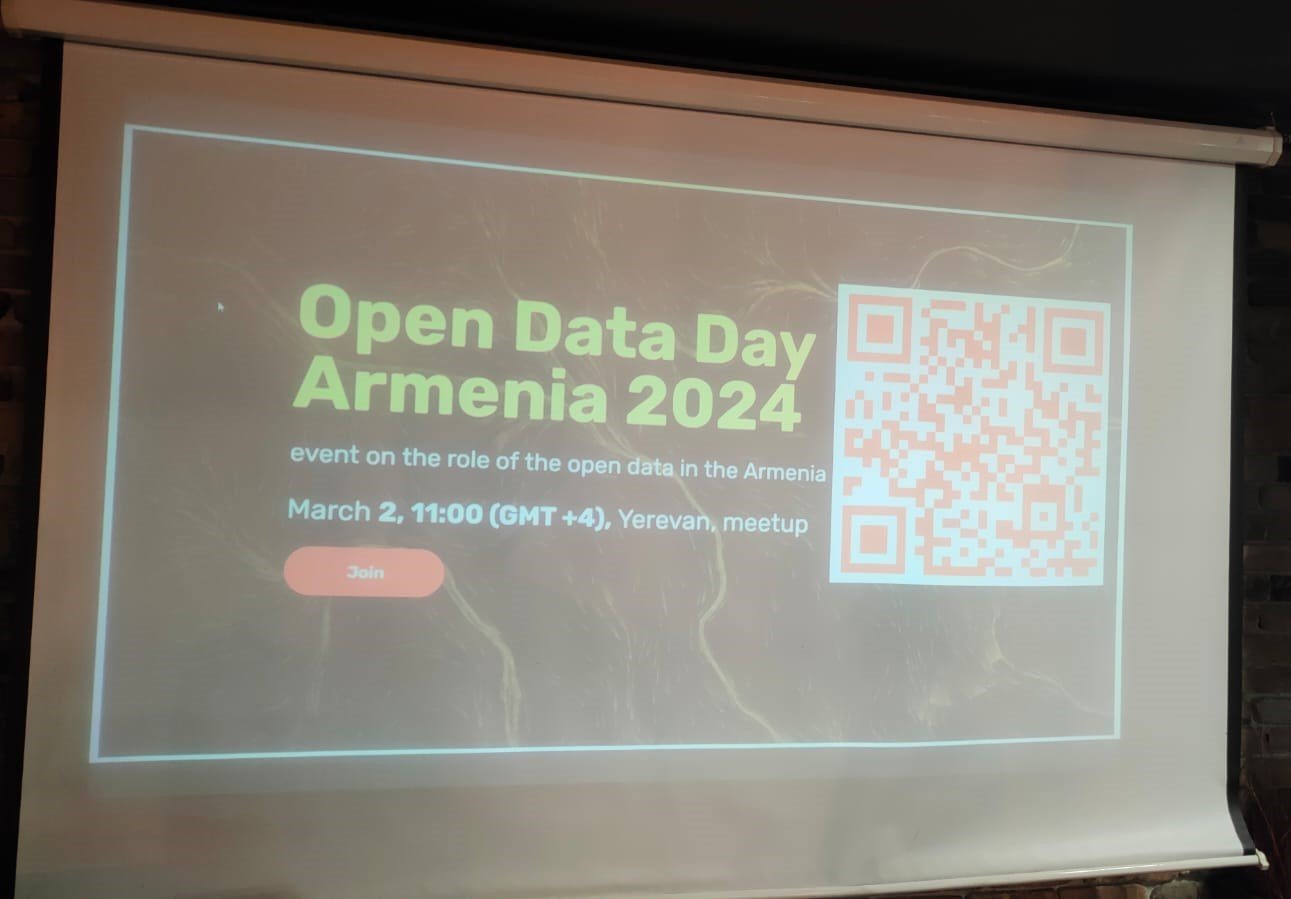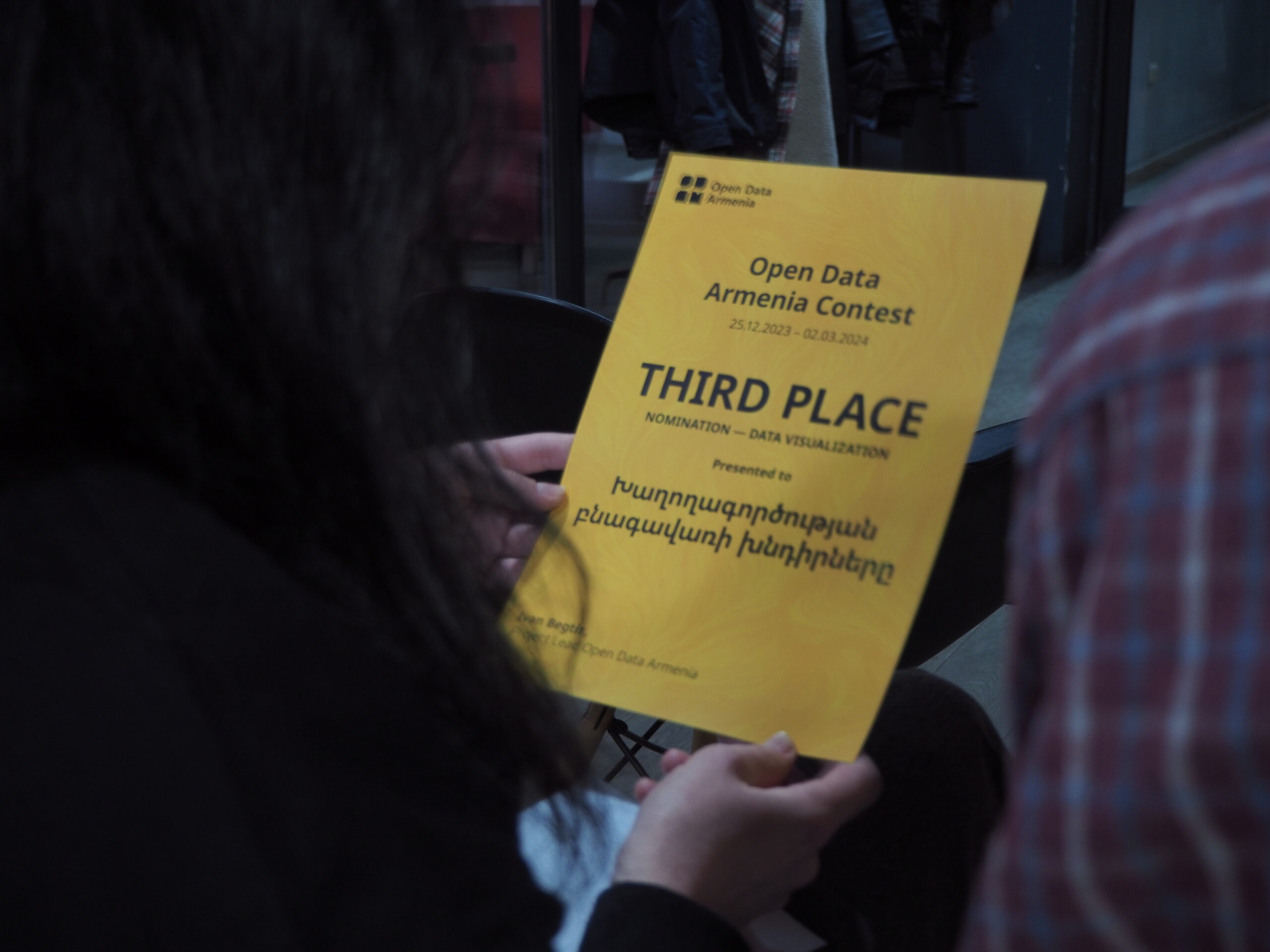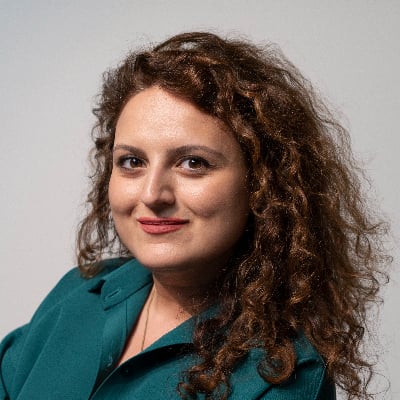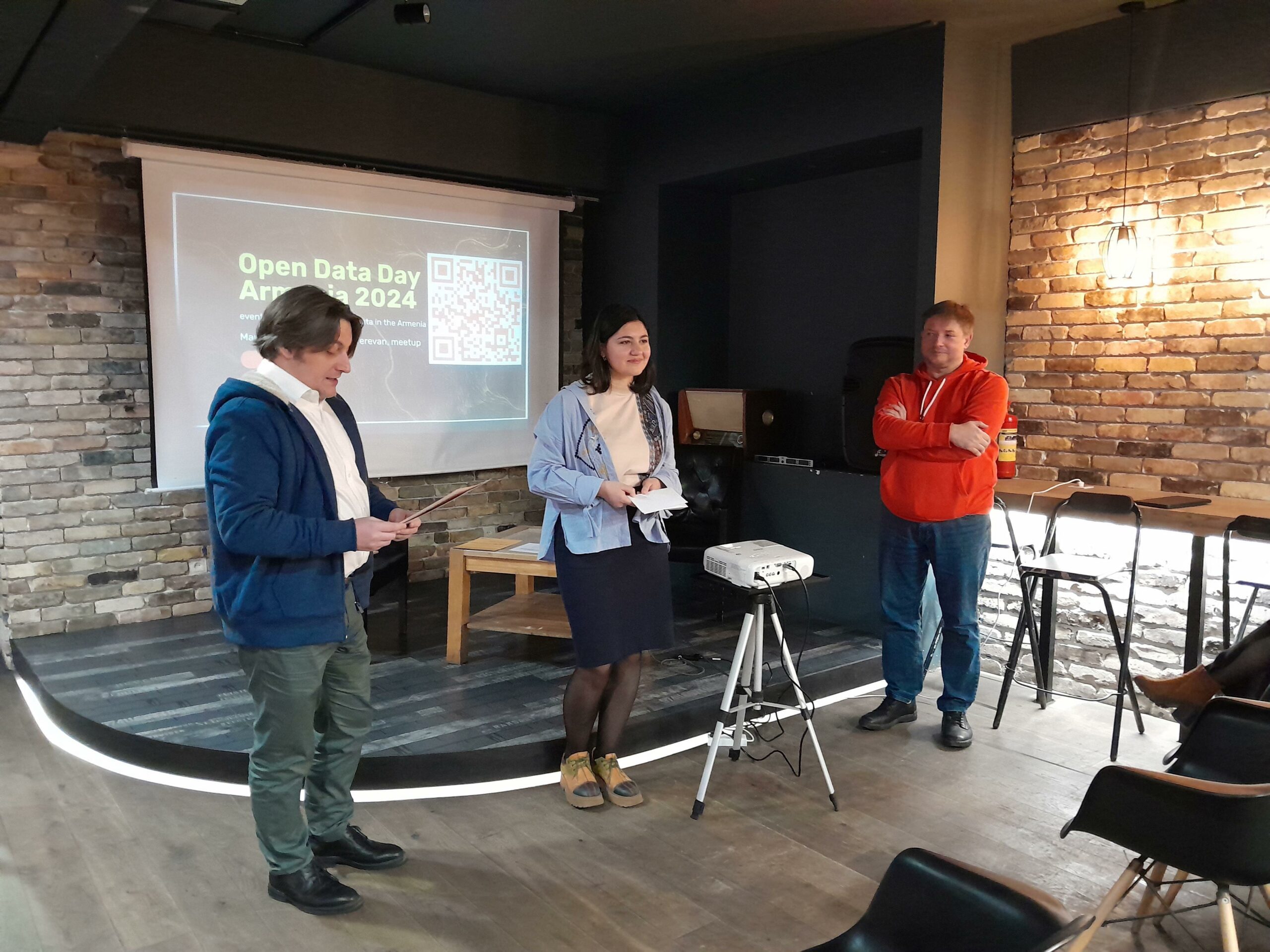
Events dedicated to World Open Data Day are being held for the 10th time in various parts of the world. This year, for the first time, thematic events and meetings are being organized in the format of an open data week. Between March 2 and March 8, approximately 250 events will take place in different countries.
Open Data Day is an international initiative organized by the Open Knowledge Foundation, supported by the United Nations and the World Bank.
Armenia joined this international initiative for the first time this year.
The public organization “Open Data Armenia” announced the first contest for open data projects in Armenia.
According to the head of the organization and data search expert Ivan Begtin, the contest aims to promote the concept of open data in Armenia.
“Open data is a driving force for the development of societies and states as it promotes the free access and use of valuable data.
I am confident that the event will be ongoing, and next time it will be more formal and extensive, with the presence of international specialists,” says Ivan Begtin.
Open Data Armenia Contest
The contest was held in two categories: cultural applications and data visualization. According to Vasili Burov, co-founder of the public organization Open Data Armenia, they received over 20 applications for both categories. However, not all of them were complete projects.
Vasili Burov said that only one project was submitted under the “Cultural Applications” category, which focused on Armenian literature. The project was quite well-developed and successful. As it was the only project in that category, it was decided to award a second prize without having to present it to the jury.
The jury noticed flaws in all 7 projects that passed the second round of the “Data Visualization” category, so it decided not to award any of the participants the first prize. The second prize was awarded to the work carried out by specialists from Kazakhstan on issues related to Armenia’s energy security. Although they were not physically in Armenia, they were able to present fairly complete work using open sources.
Vasili Burov said that only one project focused on Armenian literature was submitted under the “Cultural Applications” category. The project was quite well-developed and successful. As it was the only project in that category, it was decided to award a second prize without having to present it to the jury.
“At the state level, significant efforts are being made towards data collection, processing, digitization, and transparency and accessibility. Local and foreign businesses planning to establish themselves in Armenia can now access the required data without spending significant amounts of money on research. The state has taken up this responsibility and made the data available,” says Samson Karapetyan.
Three projects were awarded the 3rd prize in the “Data Visualization” category, including the only Armenian-language project “Problems of Viticulture.”

Khachik Danielyan, the head of AltTV operating in Armavir region, announced that they decided to tackle the most pressing issue in the area in order to participate in the competition.
Khachik Danielyan stated that in 2023, there was a catastrophic situation in viticulture. Despite claiming that the country was on the path of developing winemaking, there were problems that hindered the growth of viticulture. By using open sources, they analyzed the real cost of one kg of grapes and compared it with the procurement cost. The result showed that the grapes cost was significantly higher than the procurement amount set for 2023.
Data-driven journalism in Armenia
The field of journalism is increasingly focusing on data-driven reporting owing to technological advancements and the expanding availability of information through open sources. Investigative journalist Tatev Hovhannisyan believes there is still a lot of room for growth in data journalism. According to her, the primary objective is to provide quality education.
Tatev believes that academic journalism programs should include data journalism. Although some successful initiatives for data journalism education on informal platforms exist, these should also be integrated into academic educational environments. However, the lack of appropriate specialists and teachers presents a significant challenge.
According to the journalist, incorrect classification and unavailability of data on state platforms hinder the advancement of data-driven journalism in Armenia.
“Open Data Armenia” is working to develop the open data community in Armenia and make working with data more understandable for civil servants, researchers, media, and journalism representatives.





Add new comment
Comments by Media.am readers become public after moderation. We urge our readers not to leave anonymous comments. It’s always nice to know with whom one is speaking.
We do not publish comments that contain profanities, non-normative lexicon, personal attacks or threats. We do not publish comments that spread hate.